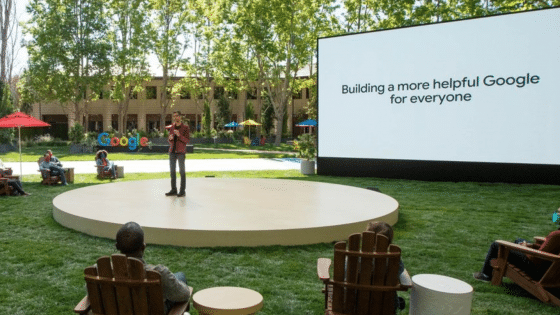Author, Lauren Vaccarello
A new generation of data-savvy people is reshaping consumer behavior. These folks can’t imagine a world without computers, mobile phones, or the internet. They skitter, haul, mod, and hack. Natural-born multitaskers, this generation packs 11 hours of entertainment into 7.5 hours. This is the first digital-native generation, Generation Digital, a.k.a. Gen D.
A study by Accenture found that Generation D represents more than 75 million people in the US, with nearly $27 trillion in assets. While this group transcends ages to include GenXers and baby boomers, the largest chunk of Gen D consumers are millennials. And they aren’t just consumers: This generation consists of active investors with income, education, and assets. Once outliers, “always connected” consumers are taking their position as a robust, established market segment, and their standards for authenticity and trust are becoming the norm. How can we reshape our marketing strategies to make sure we’re speaking to Gen D’s evolving needs and values?
The identity-trust cycle
The rise of Gen D means we have the first mature generation of consumers who have immortalized their lives on the Internet, from the party they went to in high school to last week’s camping trip. This presents a massive opportunity for marketers, but it would be a mistake to exploit that wealth of freely available market research without careful consideration. For these consumers, thoughtfully curated social personas aren’t a hobby or a performance — they are authentic expressions of identity, and we need to treat them with the respect they deserve.
First, the good news: Gen D consumers know that we are mining their data. In fact, they actually prefer the data-informed marketing programs that treat them as unique and valued individuals. A 2018 survey of 7,000 consumers by Selligent found a whopping 70% of them agree that it’s important for brands to understand a consumer’s individual situation (marital status, age, location, etc.) when marketing to them. The gentle reminder to stock up on conditioner when you’re running low, the prominent ad for your favorite artist’s next album drop, the personalized coupon from the coffee joint you hit up every Thursday — these have become expected steps in these consumers’ relationships with brands.
But, as with any relationship, this is not a one-way street. Many businesses, especially ones that really believe in their products, have historically built marketing campaigns on the premise that, once the customer understands why their product is so great, they will love it as much as the company does. For Gen D consumers, though, product promotion is not enough. They’ve put themselves out there, and they expect the same from the brands they engage with. Gen D consumers are more likely to engage with and buy from brands that have a strong online identity. They particularly respect brands that walk the walk, with clearly communicated hiring policies, investment practices, or responsibility programs that line up with bright and shiny corporate social personas.
We call this the “identity-trust cycle”: As long as the brand respects and reciprocates the Gen D consumer’s expression of identity, the consumer will continue to trust the brand and happily share their data, and even help extend the brand. Take Starbucks, for example. If a consumer didn’t know the company’s values, they might just grab their coffee and go. But when they know the company shares their commitment to social and ethical responsibility, they feel proud to post a photo of themselves with their cappuccino. Because they are eager and open to posting every experience, Gen D has become today’s tastemakers. Making a commitment to building positive relationships with the Gen D consumer audience is more important than ever, and it’s the only way to build trust for a brand.
Transparency begets trust
Gen D buyers consume differently, and there’s a paradox to how they consume. Gen D welcomes brand engagement, especially in the form of incentives. But, at the same time, they’re less susceptible to advertising, more careful about data privacy issues, and hold companies responsible for communicating trust as an organizational value. They will trust a brand to take care of their personal data, up to and including geolocation data, in exchange for access and discounts as long as there is transparency about how data is being collected and used.
Platforms like Yelp, Airbnb, and Lyft have been able to transform the dining, hospitality, and transportation industries in part because they provide actionable ratings. User ratings establish digital trust between millions of consumers and suppliers. No one would feel comfortable renting their properties to a stranger or staying in a stranger’s home without this kind of reassurance. The Airbnb ratings established the company’s platform by creating an easy, universal, and scalable credential. Consumers are happy to publicly share ratings and reviews because they can see how that data is used and how helpful it can be.
While Gen D consumers want their suppliers to know them and deliver smart, personalized offers, they also want assurance from corporations that their personal data isn’t being compromised or used against them. And remember that this generation votes with their feet and won’t hesitate to move away from a brand if they feel their privacy isn’t respected.
The new golden rule of marketing: trust above all
Nothing we’ve experienced before could have prepared us for 2020, either as marketing professionals or as individuals. We’ve all been trying to cope with the tragedy of a global pandemic, the mobilization of a long-overdue human rights movement, and the widespread uncertainty of what’s coming next. As we adapt to the new normal, and whatever the next new normal will be three months, six months, a year from now, we should seize on the opportunity to transform the way we approach marketing.
The old golden rule says treat others as you would want to be treated. Gen D represents a large, exciting, and diverse market segment. With their openness to sharing and their high standards for transparency and trust, these consumers serve as a reminder that the market is a wild mix of unique personalities, and not all respond the same way. Sensitivity and respect deserve a place at the center of our marketing strategies, especially in the months and years to come, but if we want to reach Gen D, we must apply those principles in tandem with truth and transparency. That is the only way to earn this generation’s brand loyalty.
Lauren Vaccarello is the Chief Marketing Officer at Talend, Inc.
Priority Consultants is a regional communications and digital firm with a focus on business to business technology and professional services. Founded and headquartered in Singapore since 1985, the territory covered by Priority Consultants embraces the world’s fastest-growing economies in 11 cities across Southeast Asia and India.



















